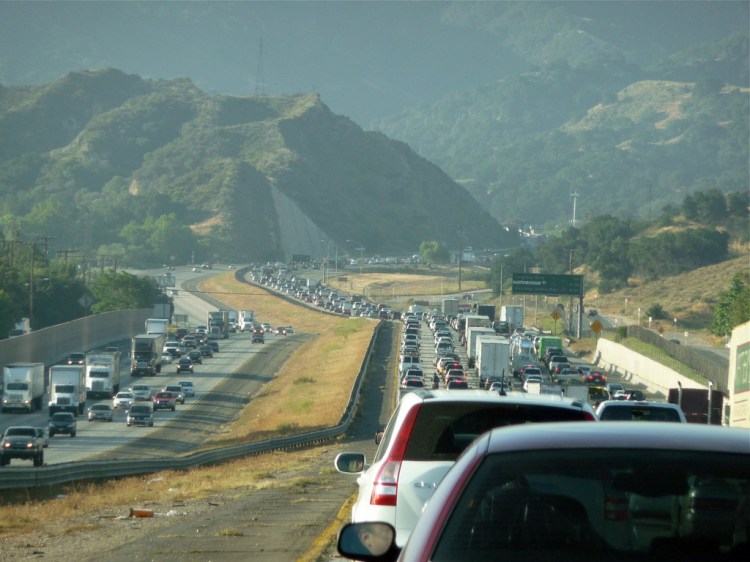I vowed never to own another car again after spending a year living in the commuting dystopia known as Los Angeles. The county consistently ranks as one of worst commuter areas in the country, with average commuting time of around 30 minutes; random traffic congestion doubles commuting time in L.A. more than any city.
Uber, the ever disruptive car sharing app, just slashed its prices in LA for UberX, claiming to be 40 percent cheaper than a taxi. My old commute from West Hollywood to downtown is now $20 each way (or the same price across the dreaded 405 freeway to Venice Beach). For me and other frequent telecommuters, it’s now the same cost to take UberX everywhere and never have to deal with driving through the congestion madness again.
AAA estimates that the average price of car ownership per year is about $9,000. LA is much more expensive, thanks to insurance costs. My old Subaru Forester is about $10,000 per year. Factor in parking and the occasional traffic ticket, and it’s about $12,000 per year.
For me, I telecommuted between two and four times per week, meaning I’d spent about $280 per week or $13,000 per year on UberXs at current prices. For my own private on-call driver, I would happily have spent an extra $1,000 a year (and probably would have paid much more).
For folks who don’t telecommute but can carpool and split the cost each way to work, the price savings could be the same, depending on where the group lives in the city. Many of my friends lived in the neighborhood. Others had moved apartments to be closer to their work.
Of course, traffic will still be bad, but having one’s own personal driver means I could work or read a book, instead. The time saved never having to park would increase my productivity alone enough to justify ditching a car.
In San Francisco, it is already cheaper to take Uber everywhere than own a car for many residents (including me).
I do question how long Uber can sustain these cut-rate prices. Car sharing companies face fierce opposition to get different insurance approved by the state. Uber could also be charging less just to dominate the market, and then jack rates back up once they’ve wiped out part of the taxi industry.
But if competition between Uber, taxis, and other ridesharing companies continues to drive down costs, it could very well be worthwhile for most city residents to ditch their cars. And that would save thousands of lives and tens of hours wasted each week in traffic.
Now, that’s disruption I can root for.


